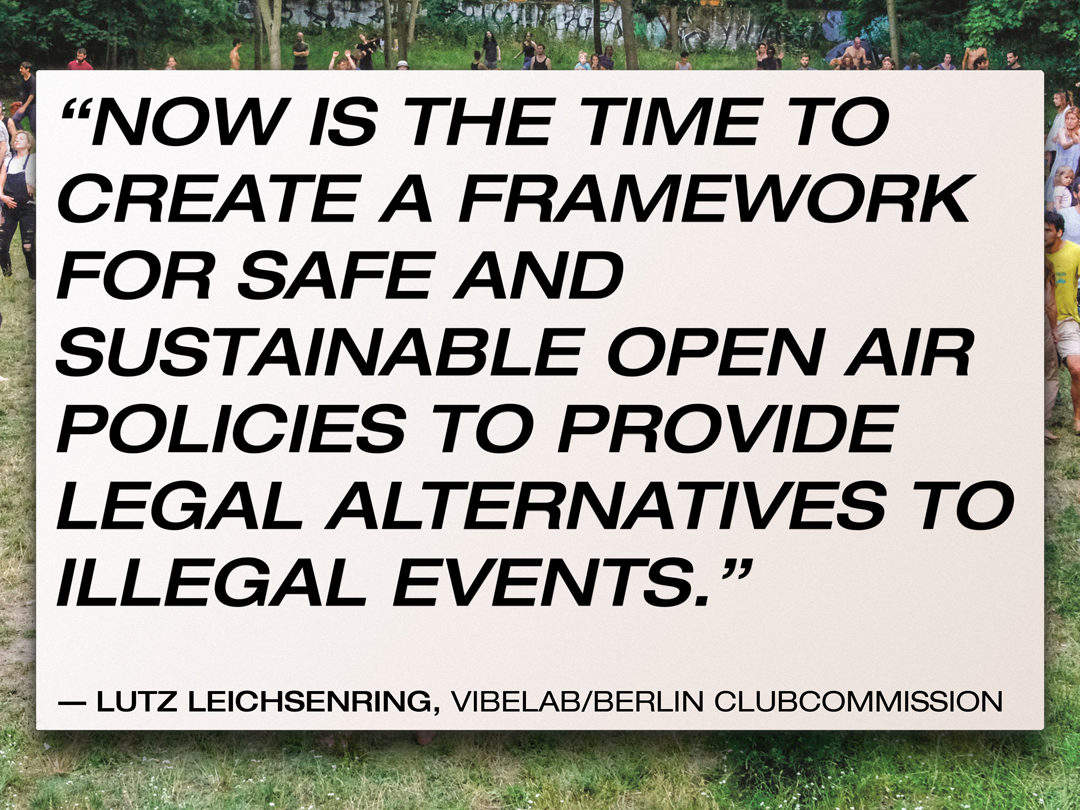Managing outdoor space and sound: Chapter One of The GNRP looks at Open Air Nightlife and Covid-19

A global collaboration of some of the foremost minds on nightlife governance and urban planning, spearheaded by nighttime.org’s VibeLab, the Global Nighttime Recovery Plan (GNRP) has released its first chapter today, focusing on use of outdoor space.
“Pent-up demand for social activity combined with the continued restrictions on use of indoor areas has led to a sudden increase in demand for outdoor space,” the report states.
“In times of closed clubs, postponed festivals and cancelled concerts, outdoor spaces play a key role in enabling safer gatherings, and providing opportunities for festival, club and event operators to stay active.”
The GNRP’s first chapter features case studies from open-air dance events in Berlin, Germany and large-scale pavement cafes in Vilnius, Lithuania, also referencing examples from Paris and Orlando as it analyses the challenges and opportunities for global cities in unlocking open-air public space for nightlife purposes.
In response to the severe fragility of nightlife industries all over the world due to COVID-19 restrictions, and acknowledging the universal need to socialise, the GNRP aims to push global dialogue towards local government action and innovation, resulting in safe and realistic solutions for the recovery of nighttime economies.
“Willingness to work together, experiment, and rethink uses of open spaces will be essential for the months and years ahead.”
Mark Adam Harold – Chapter One GNRP
What next?
It has never been more obvious that we need genuine local government by the people, for the people. The pressure caused by the pandemic has shown that city authorities need to be close to their populations, to communicate clearly with their residents, to win the trust of their business communities
We invite the nightlife community to…
- Build the dialogue online by circulating the GNRP, and sharing examples of open-air nightlife practices in your area.
- Communicate GNRP ideas and resources with your local government and petition them to take action with public space.
We also invite local governments and nightlife stakeholders to…
3. Analyse local opportunities and challenges in adopting best practices via 1:1 consulting sessions
4. Develop an action plan unique to your city.
